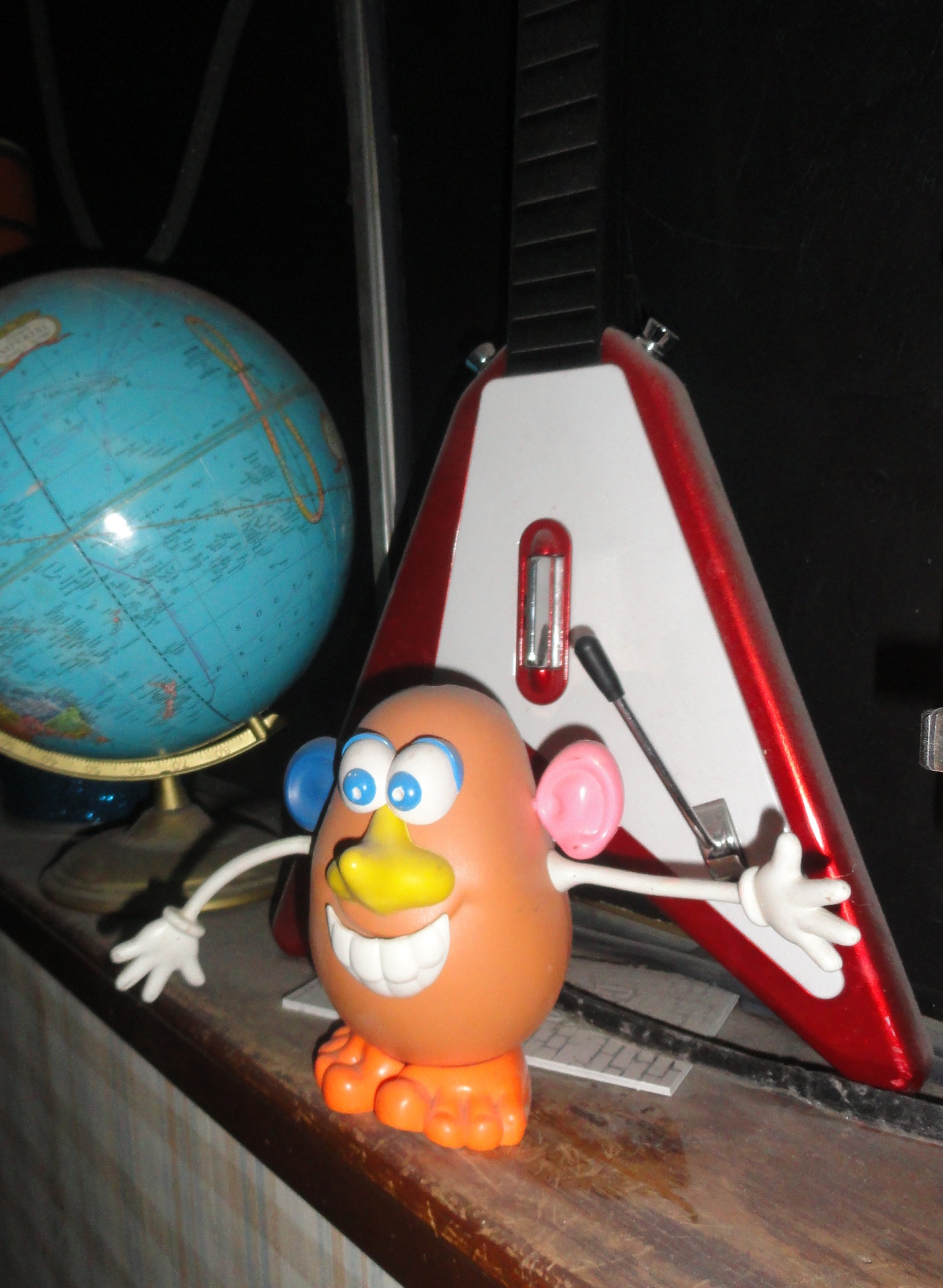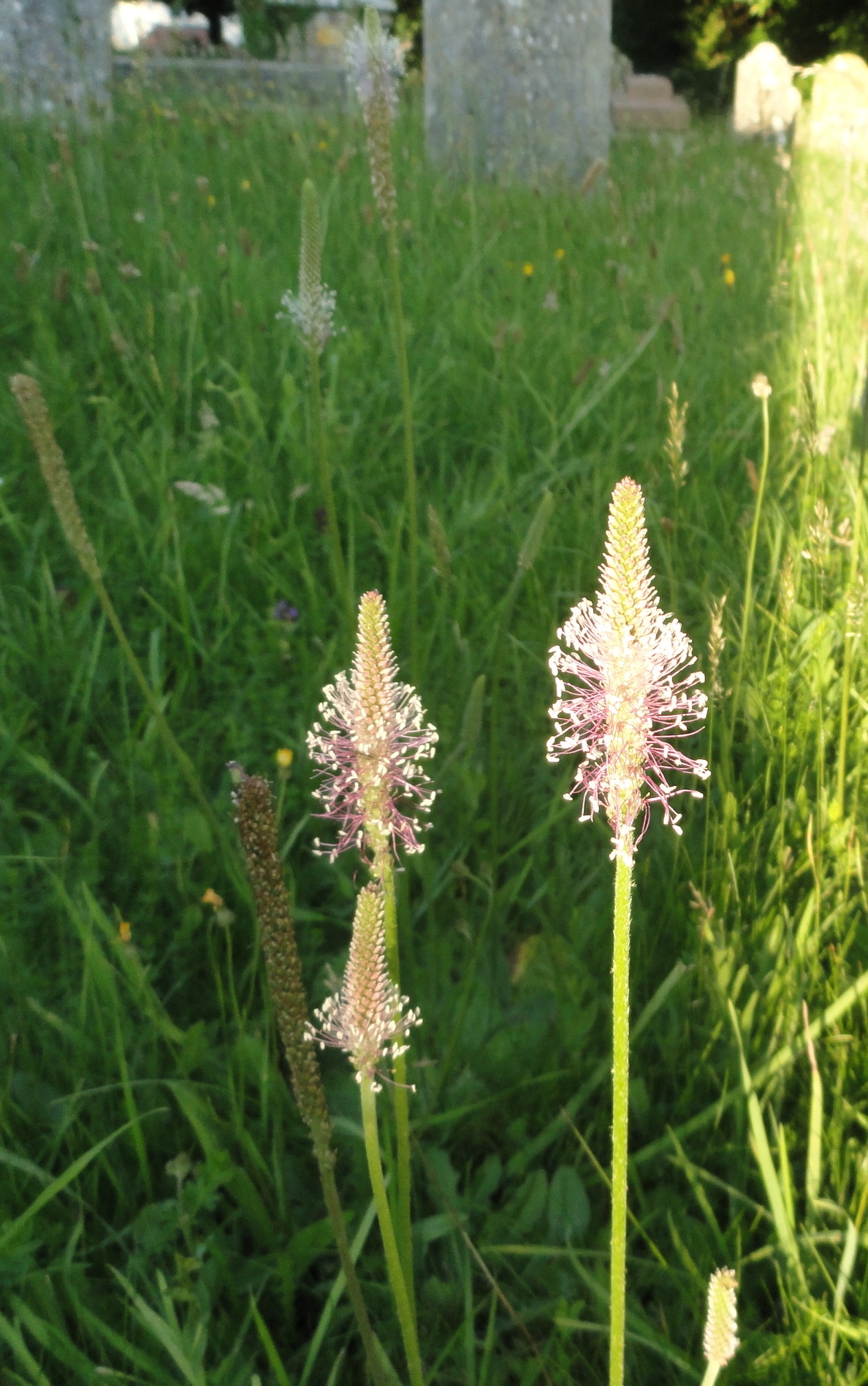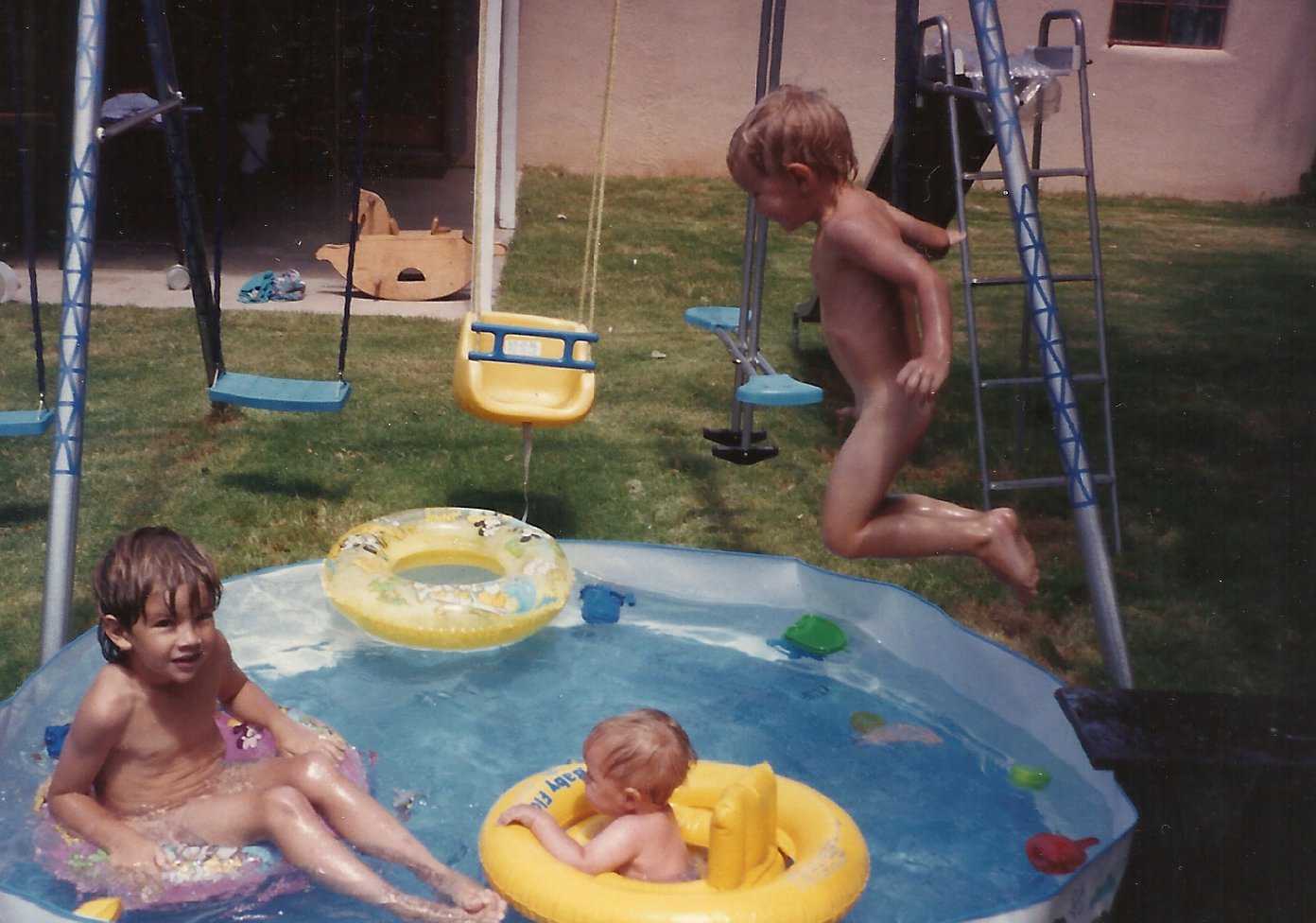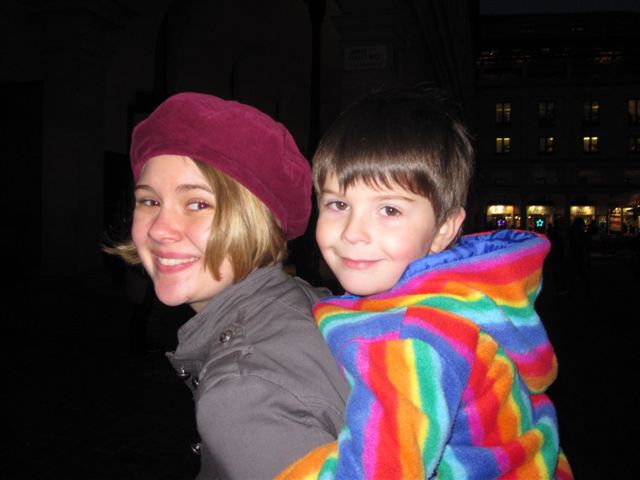I wrote this on March 10, 2000:
Sometimes it's kids, sometimes it's parents.
Let's list ideas for cheering up, and de-funkifying.
I love "breathe."
Whether it's jogging or breath-holding, or laughing, or spinning or meditation—whatever causes a sudden more concentrated and less thought-laden intake of oxygen is relaxing.
I like happy music or funny, familiar movies—the stuff you already know and can put on as background, which reminds you subliminally of more peaceful and carefree days.
I like comfort food, playing with ice cubes, going to the store just to buy something cold (lettuce, apples, ice cream, a small soda for all to share, special juice or fancy tea in a bottle—something cold and soothing, and no doubt this works better in the desert than it might in Minnesota this morning).
Painting—not fancy elaborate painting, but big brush strokes on big scrap paper, or a sign for the dog, or painting on a playhouse outside or something that doesn't involve stress (if it's quickly available).
Mix it up: Wear something you haven't worn for a long time. To assist a kid to do this, get out the off-season clothes and see what's not fitting, or find some funky old thing of yours and see if the kid wants it, or stop at a garage sale and get a t-shirt for a quarter or something. A new color, a new picture, some soft cotton or silk. Marty got a silk shirt at a thrift store the other day for $3. He's thrilled. Wears it like a jacket over t-shirts. Touches the sleeves a lot.
While this stuff is being done/discussed/reviewed, the depressing problem is being dispersed, forgotten, avoided. Next time the depression comes (if it does, if it's a long-term thing) the kid or parent will approach it with a more relaxed mind and calmer body.
More ideas??
. . . .
What works at your house?
Read responses with other ideas here: Conversations with Sandra Dodd

photo by Alex Polikowsky















